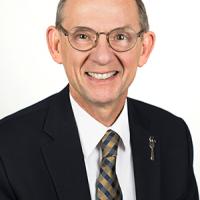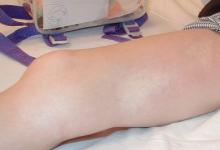Early Rheumatology: The Contributions of Max Hirsch, MD Save
Many readers of RheumNow know of my interest in the history of our discipline, and some of the writings and discoveries which have resulted from them. In the past three years, I have had the opportunity to explore the contributions of Max Hirsch, MD to our field.
The founding fathers of rheumatology include prominent figures such as Jan van Breemen, Robert Fortescue Fox, as well as persons better known in the United States, such as Philip Hench. The beginnings of rheumatology can be traced very directly to the science and culture of the spa, with water therapies playing an important role, particularly in Central Europe. This was especially important in Germany, where the spas had a central role in the management of rheumatic diseases, which, until the 1950s, there was very little therapy for. It is not surprising then that many of the important personages in early rheumatology came out of this tradition.
Heretofore poorly known is the work of Max Hirsch, a founder of modern German Rehabilitation Medicine and Rheumatology. Dr. Hirsch was a major figure in the creation of the Germany Society for Rheumatology and, internationally, the International League Against Rheumatism in the late 1920s.
As is so often the case, Dr. Hirsch’s personal story is also the story of his time. His contributions are only recently uncovered, lost because of his Jewish heritage. Dr. Hirsch and his wife and older son perished in the Holocaust. His younger son and wife were able to escape to Sweden. The fate of the Hirsh family was first illuminated by Dr Wolfgang Keitel, historian of the German Society of Rheumatology. In pursing the story, and translating a work by Dr. Keitel on it, I was able to meet the granddaughter of Max Hirsch, Mrs. Eva Olsson in Stockholm shortly before her death and also met her son, Leif Olsson, who helped me understand the family history and provided documents and pictures which were helpful in weaving together the story.
The threads that Max Hirsch wove together with Jan van Bremen with so much effort were brutally ripped during the 1930s. A closer look at the works of Hirsch reveals an impressive objectivity, accuracy, and care and enthusiasm, as he campaigned for access to treatment for patients with rheumatic diseases and championed the science of rheumatology. His patriotism was a strong attribute that he pursued with great personal engagement and had its roots in his childhood as a member of a national minority in the majority Polish region he grew up in. A person of great modesty, he never placed his own contributions in the forefront and, in his texts, his fidelity, devotion, and loyalty to his teachers, supervisors, and colleagues are evident in his writings and tributes for his colleagues and predecessors.
Hirsch helped to lay a solid foundation for balneology and rheumatology by making important contributions through originating journals and publishing scientific works and commentaries. With his diverse connections nationally and internationally, he was able to strengthen the cohesion of interested experts and contribute to the recognition and inclusion of German scientists as equal partners in the international scientific community in the aftermath of World War I. Particularly for this achievement, he deserves to be mentioned for working in exemplary fashion to launch the new discipline of rheumatology in Germany and internationally in the years between 1927 and 1933.
Anyone interested in learning more about Dr. Hirsch and his contributions to rheumatology is invited to read our recent paper: Keitel W, Olsson L, Matteson EL. Max Hirsch (1875-1941): His forgotten fate and contributions to the founding of modern rheumatology. Eur J Rheumatol 3(3):101-105, 2016.
Readers who wish to pursue a more in depth understanding of the political and historical background to this story may contact me for a copy of our book, which I am happy to provide at no cost as long as remaining stock lasts: Max Hirsch (1875-1941: Balneologist and Rheumatologist. A Jewish Fate.










If you are a health practitioner, you may Login/Register to comment.
Due to the nature of these comment forums, only health practitioners are allowed to comment at this time.